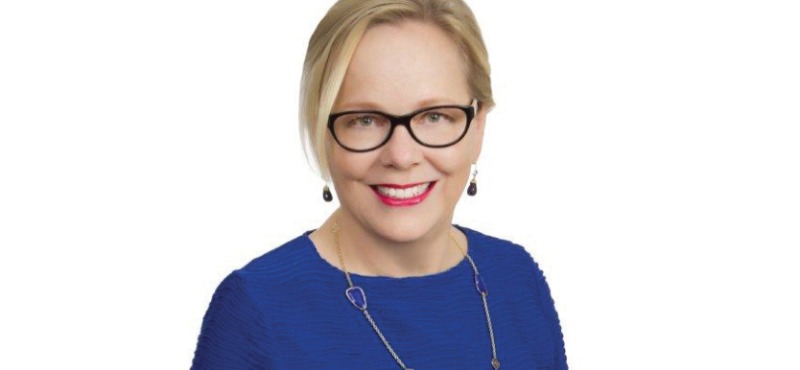Roy Oppenheim Shares What Has Changed & What Hasn’t Changed During the 10-year Great Recession Anniversary
Hi, Roy Oppenheim here, real estate attorney, foreclosure defense attorney, and legal blogger for the South Florida Law blog. Folks have been asking me recently what my thoughts are about the 10-year anniversary of the Great Recession and the foreclosure crisis. And I’ve given some thought, and we’ve done a little writing, and I wanted to share real quickly with you about some things that I think that have changed and those things that I think have not changed in the past 10 years.
And the number one thing that I think has changed is that there are a lot more people renting today than are buying as a percentage of the entire population. And of those folks who are renting, many people are renting from (i) a new investment class of folks who are buying homes; (ii) Wall Street hedge funds (iii) other groups (iv) professional groups that are buying homes and renting them.
We really didn’t have that 10 years ago. So those are two things right out of the box. The next thing is that the new generation of buyers are not as quick to buy a home or to form a home with a family like they were 10 years ago. And part of that is that millennials prefer to save their money, don’t necessarily believe in real estate as an investment, and also, have been shaken, because they were in high school or in middle school during the foreclosure crisis and have experienced some of the psychological trauma that occurred to their family, when, in fact, they couldn’t afford to pay their mortgage.
The other thing is that, it has been reported that more women are going to work in professional positions and are less likely to necessarily end up in a traditional family dynamic as early as maybe their parents were. And thus, the idea of formation of a family unit to buy a home or buy a larger home is also shrinking. Therefore, you also have this phenomena that people are actually buying or renting smaller homes than they were just 10 years ago.
The other big thing that has, I think, changed is that banks, because of the bailouts, receives billions and billions of dollars, and most of the banks have gotten bigger. Many of the smaller banks have been gobbled up. And if we look back to how banks looked 10 years ago versus banks today, there are less banks today and more larger banks than they were.
So, certainly, banks, in and of themselves, have gotten much bigger. On the foreclosure side, we have seen that most of the foreclosure courts are moving their dockets faster, for the simple reason that there are now less foreclosures going through the court system. At the same time, the staffs of the foreclosure units have been taken back. And so, even though it, maybe at one point, took over two years to complete a foreclosure, and then it went down to maybe less than a year, we’re probably back at a year, year and a half, to complete a foreclosure today.
The other thing that’s clear is that, when Dodd-Frank was enacted and the banks had to tighten up their lending requirements, we are now finding that it is so much more difficult to get a mortgage loan. And I like to analogize that it’s like making an appointment for the proctologist, because it’s just really a difficult process to get a mortgage loan today.
It’s no fun. It’s really one of the more miserable things in life when you get turned inside out and you’re asked for so much information and then asked for more information. Then the banks lose that information, then you have to provide more information. It’s not a pleasant experience. And that’s actually putting a real damper on the entire real estate community. Plus, interest rates, I mean, that’s probably the number one phenomena, are so much higher than they were during the middle of the crisis, and they’re getting back slowly to what they were before the crisis.
The other unfortunate phenomena of the Great Recession is that we’re seeing this remarkable shrinking of the middle class. It seems that, through technology and through the money that was poured into the bailout, that it clearly helped those people who were part of the ownership class. People who owned real estate, people who owned stock, people who owned businesses. They benefited dramatically from 10 years ago.
So you have a group of people that are doing remarkably better than they were as a statistical percentage of the entire GNP of the population, versus those people in the lower quadrant or the lower 10th that really haven’t done very well. While we’ve seen wages start to creep up, for the most part, we’ve seen a tremendous shrinkage of the middle class. And, finally, too big to fail is alive and well, the banks have gotten so much bigger that they are even more fundamentally protected by the idea that if they fail the whole economy fails.
And that’s really the great irony to this whole crisis is that too big to fail is alive and well. And probably the biggest irony to the whole thing is that the Wall Street Rule is more than alive and well than ever before. And what is the Wall Street Rule? That is, he who has the gold rules, meaning, that Wall Street continues to make the rules, and they can define what is considered acceptable.
Even if that’s illegal behavior, they will define it as acceptable, to the extent that, if one Wall Street firm is doing it, they all will do it. And it’ll be done under the rubric of the Wall Street Rule.
Watch Roy Oppenheim Reviews the Great Recession 10-years Later
From the Trenches,
Roy Oppenheim
Should you have any questions or would like to schedule an appointment,
contact us.
Oppenheim Law
2500 Weston Rd #404,
Fort Lauderdale, FL 33331
954-384-6114
Email: contactus@oplaw.net
Website: https://www.oppenheimlaw.com
Original Source: https://southfloridalawblog.com/what-has-changed-what-hasnt-changed-during-the-10-year-great-recession-anniversary/
About Roy:
He founded Oppenheim Law in 1989 with his wife Ellen Pilelsky and uniquely positioned the Firm as one of Florida’s leading boutique law firms in Weston, Florida. In addition, in 1994, he co-founded Weston Title & Escrow, the oldest title company in Weston, Florida, and he currently serves as its Vice President.
Weston Title: https://westontitle.com/






















